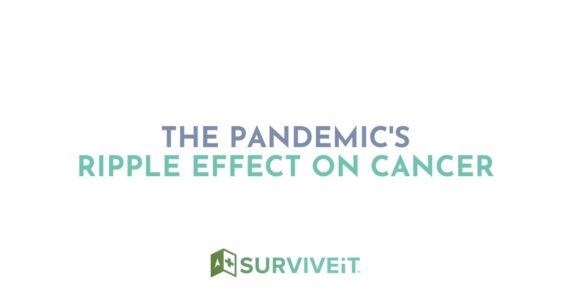The Pandemic’s Ripple Effect On Cancer

In Wyoming, cancer has presented a persistent health challenge. According to the American Cancer Society, the people of our state receive fewer common cancer screenings like mammograms, colonoscopies, and pap smears. This is due in large part, no doubt, to our rural makeup and the difficulty many face in accessing healthcare facilities. We also have disproportionately high cancer risk factors, such as tobacco use and obesity. Consequently, Wyoming has a higher cancer mortality rate than 30 other states.
These disturbing numbers are clarifying the need for a rethinking of how we handle cancer detection. Further, the COVID-19 pandemic is telling us that we need answers that can be effective during times in which social distancing and fear of infectious disease is keeping people away from conventional health screenings in clinics and physicians’ offices.
The most effective way to prevent cancer deaths is to detect the disease early and begin treatment immediately. With advances in immunotherapies and other treatments, the odds of effectively treating cancer are stronger than they’ve been in the past, especially if intervention occurs in the early stages of the disease.
The coronavirus pandemic has kept many people from getting that critical, lifesaving head start. In a social distancing, stay-at-home world, fewer people have been willing to enter health care facilities for fear of contracting the virus. This is particularly true for vulnerable populations like senior citizens who face a disproportionately high cancer risk. If you’re over 65, you’re being warned to avoid spending time in public places. Unfortunately, for some, this also means postponing routine cancer screenings. The result: cancer can go undetected, worsening survival chances. This is happening right now. Studies have shown that the number of people nationwide getting screenings for breast, cervical, and colon cancer have plummeted in 2020. By taking advisable steps to protect their health by avoiding public places, some people are inadvertently putting their health and lives at greater risk.
What you missed this week in notable Wyoming crimes and court cases
These extraordinary circumstances could well happen again in the future. We need to adapt the way we approach cancer screenings to overcome the barriers a public health crisis can throw in front of us. Fortunately, scientific breakthroughs may help meet this need.
The best example may be a new screening technology that can be administered without requiring patients to spend significant time in clinic waiting and examination rooms. Companies like GRAIL have developed blood-based tests that can detect dozens of different types of cancers and complement existing screenings for cancers where they are recommended. In short order, a lab technician can perform a single blood draw that will be analyzed to alert the patient and their physician if further investigation and potential treatment should be pursued. This new approach to cancer screening has had strong early results and has received Food and Drug Administration “breakthrough” designation, FDA’s program to speed up development, assessment, and review of exciting medical technology.
So-called multi-cancer early detection could be a game-changer during periods when our lives are affected by necessary social distancing and in numerous broader circumstances. Still, we need to begin thinking now about how it will be made widely accessible once it gets its blessing from the FDA. As with all breakthrough innovations, the key will be whether the healthcare system — be it Medicare or private insurance companies — embraces it and makes it available and affordable for the American people, particularly those whose demographic status places them at higher cancer risk. This will likely require involvement from our representatives in Washington.
Physicians, medical professionals, and public health advocates have been working very hard to reduce Wyoming’s too-high cancer mortality and rural access challenges. The inroads we’ve made, though, are in danger of being reversed by the threat of viral pandemics. Scientific breakthroughs is bringing us innovation that can help more of our state’s citizens fight cancer. We must ensure that policies are in place to put new technologies like these to work and overcome challenges to broad adoption.
